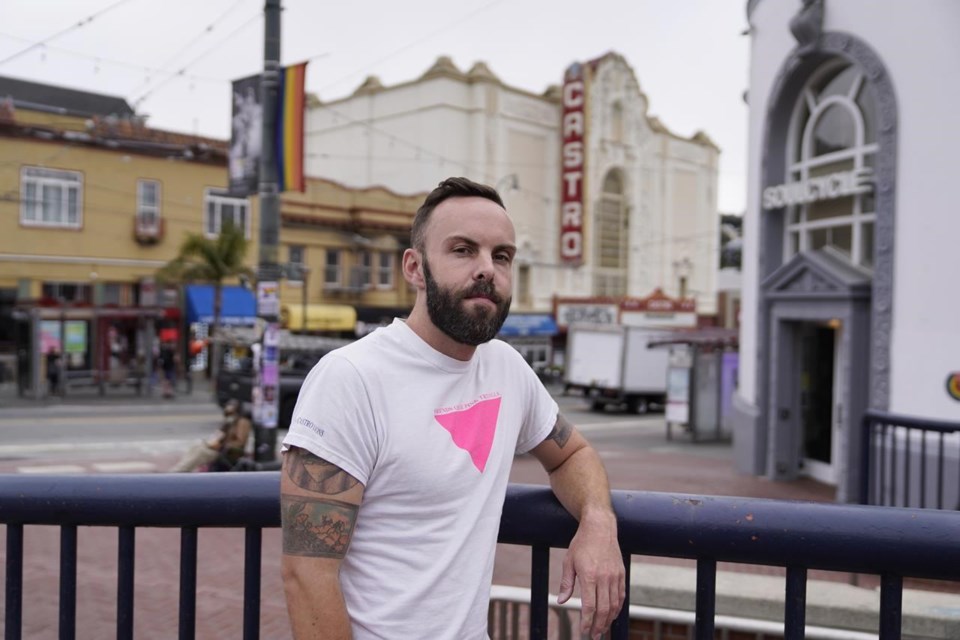WASHINGTON (AP) ŌĆö The countryŌĆÖs monkeypox outbreak can still be stopped, U.S. health officials said Thursday, despite rising case numbers and so far limited vaccine supplies.
The Biden administrationŌĆÖs top health official pushed back against criticism about the pace of the response and worries that the U.S. has missed the window to contain the virus, which has been declared a .
ŌĆ£We believe we have done everything we can at the federal level to work with our state and local partners and communities affected to make sure we can stay ahead of this and end this outbreak,ŌĆØ Xavier Becerra, head of the Department of Health and Human Services, told reporters on a call.
But he added that local health officials ŌĆ£must do their part. ... We don't have the authority to tell them what to do.ŌĆØ
The pushback from federal leaders came as they announced distribution plans for 780,000 shots of the two-dose Jynneos vaccine. The doses will be allocated to states, cities and other localities based on their case numbers and the size of their populations that are considered high-risk for the disease.
Health departments in San Francisco;, New York, Washington, D.C., and elsewhere say they still donŌĆÖt have enough shots to meet demand and have stopped scheduling appointments for second vaccine doses to stretch supplies.
Becerra said the federal government has done its job and said the onus is now on local officials to use the tools available.
ŌĆ£WeŌĆÖve made vaccines, tests and treatments well beyond the numbers that are currently needed available to all jurisdictions,ŌĆØ he said.
But one representative for specialty health clinics said Becerra's comments showed a ŌĆ£lack of understanding for the full breadth of this crisis.ŌĆØ
"Clinics around the country are pleading with federal health officials for the information, supplies and staffing they need to successfully bring an end to this outbreak,ŌĆØ said David C. Harvey, executive director of the National Coalition of STD Directors, in a statement. The group is pressing for $100 million in emergency funding for local health departments and clinics.
There were more than 4,600 reported monkeypox cases in the U.S. as of late Wednesday, according to the CDC, and federal officials expect those numbers to rise.
More than 99% of reported cases are in men and the vast majority of those are among men who reported with other men, though health officials have stressed that anyone can catch the virus.
The U.S. is now capable of testing 60,000 to 80,000 people per day, though Becerra said daily testing numbers are well below that.
The monkeypox virus mainly spreads through skin-on-skin contact, but it can also transmit through touching linens used by someone with the infection. People with monkeypox may experience fever, body aches, chills and fatigue. Many in the outbreak have developed sometimes-painful zit-like bumps.
The U.S. has ordered 5.5 million more vaccine doses for delivery by mid-2023 and has rights to the raw ingredients that could make 11.1 million more doses. U.S. officials said a massive vaccination campaign could still be avoided if communities and individuals take measures to avoid spread.
In San Francisco, Tom Temprano had an appointment to get his second dose next week but was recently notified that it was canceled due to limited supplies. Temprano, who is the political director of San Francisco-based Equality California, said he's frustrated that health authorities have taken so long to respond.
ŌĆ£Especially coming out of, still, two-and-a-half years into a pandemic, itŌĆÖs just a very disappointing response for the first larger-scale public health crisis weŌĆÖre facing coming out of that,ŌĆØ he said.
He also sees parallels to the slow government response to AIDS in the 1980s.
ŌĆ£IŌĆÖve heard from many folks ... that this feels similar in the lack of real concern and urgency to a disease that is right now disproportionately impacting the LGBTQ+ community,ŌĆØ said Temprano, who is 36.
The CDC estimates about 1.5 million Americans currently meet suggested criteria for vaccination, primarily men who have sex with men.
But officials on Thursday declined to set a figure for how many vaccine doses would be needed to stop the outbreak. Nearly 340,000 vaccine doses have been distributed, but a CDC official acknowledged the federal government doesn't know how many have been administered.
The additional 780,000 shots being sent to states this week were delayed by . They sat for weeks in storage in Denmark as U.S. regulators finished inspecting and certifying the facility where they were manufactured.
California state Sen. Scott Wiener, who belongs to the California Legislative LGBTQ Caucus, called the additional vaccines ŌĆ£significant.ŌĆØ But he added: ŌĆ£Of course, itŌĆÖs not enough, and we know that weŌĆÖre going to be getting millions more doses over the remainder of this year and into next year, which is not soon enough in terms of actually containing this outbreak.ŌĆØ
GeorgiaŌĆÖs health department hasnŌĆÖt had to postpone any second doses, but spokeswoman Nancy Nydam said: ŌĆ£Demand is still very high. Every time a health department or other provider opens appointments or slots at an event, they are taken up in a matter of minutes.ŌĆØ
___
Associated Press writer Andrew Selsky in Salem, Oregon, and Mike Stobbe in New York contributed to this story.
___
The Associated Press Health and Science Department receives support from the Howard Hughes Medical InstituteŌĆÖs Department of Science Education. The AP is solely responsible for all content.
Matthew Perrone, The Associated Press



